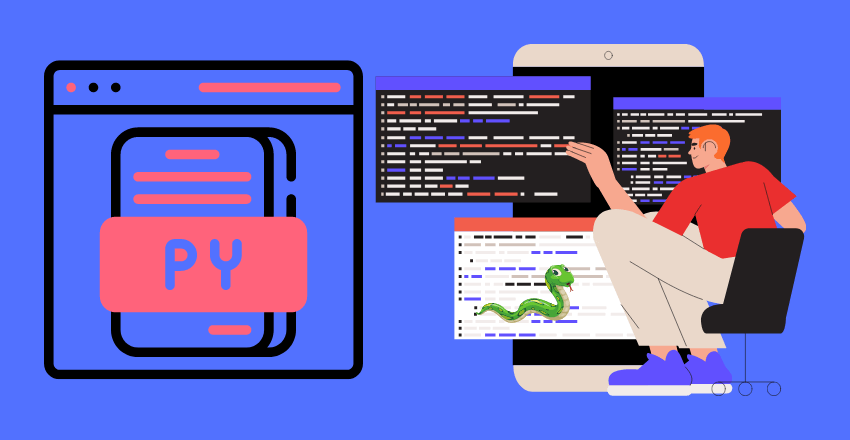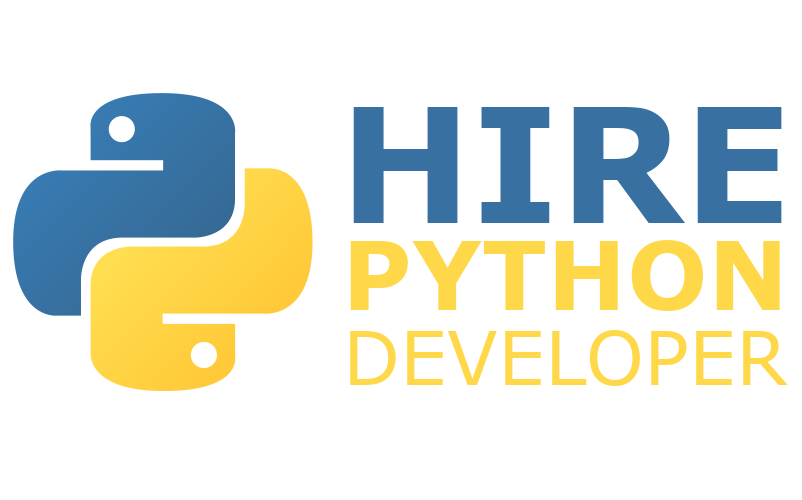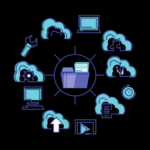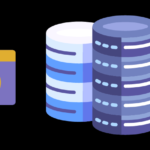
Is Python good for software development? Dive into a journey of discovery as we unravel Python’s power in shaping the tech industry.
A journey into Python for software development can feel like stepping into a vast jungle, teeming with varied creatures of libraries, syntax, and possibilities. From my over two decades of experience in the field, I can tell you it is an adventure worth taking. Here, we will trace the path that led to the rise of Python, its utility, and why, in my opinion, it may be an excellent choice for software development.
The Utility of Python
Python’s utility stems from its fundamental design principles. Its clean, easy-to-understand syntax makes it highly readable, reducing the cognitive load on developers. This readability makes Python an excellent language for beginners, while its depth keeps seasoned developers engaged.
Python‘s standard library, often touted as “batteries included,” provides a vast array of functionalities out of the box. From file I/O to web services, Python’s standard library covers a wide spectrum, reducing the need for external libraries and tools.
Furthermore, Python’s dynamic and interpreted nature allows for rapid application development and prototyping. Developers can see the results of their code almost immediately, a feature that comes in handy when testing out new ideas or debugging existing ones.
Python’s community deserves a special mention. Being open-source, Python has a vast community of developers contributing to its growth. This results in a wealth of resources, from libraries and frameworks to tutorials and forums, making Python not just a language but a rich ecosystem.
Key takeaway: Python’s utility lies in its readability, comprehensive standard library, quick prototyping capabilities, and an active community that constantly contributes to its growth.
Why Python May Be an Excellent Choice for Software Development

I find Python to be an excellent tool for software development. Here’s why:
- Readability: Python’s syntax is clean and easy to understand. This makes maintaining and debugging code much easier compared to other languages.
- Efficiency: Python allows developers to do more with less code. Its high-level nature means developers can focus more on solving the problem at hand rather than worrying about low-level details.
- Versatility: From web development to AI, Python’s vast array of libraries and frameworks makes it a versatile tool that can handle a variety of software development tasks.
- Community: Python’s large community means better support and faster resolution of issues. The wealth of resources available makes working with Python a joy.
Key takeaway: Python’s readability, efficiency, versatility, and strong community support make it an excellent choice for software development.
Pro tip: While Python is an excellent tool, remember that the best tool for the job depends on the job at hand. It’s always a good idea to familiarize yourself with multiple languages.
Top 10 Uses of Python
Python, since its inception in 1991, has seen a vast array of applications. Let’s consider some prominent ones.
- Web Development: Leveraging frameworks like Django and Flask, Python enables the creation of highly functional and secure websites.
- Data Science: Python, with libraries like pandas and numpy, becomes a potent tool for data manipulation and analysis.
- Machine Learning: With TensorFlow and scikit-learn, Python makes machine learning more accessible.
- Automation: Python scripts can simplify repetitive tasks, making life easier for developers.
- Cybersecurity: Python’s efficient syntax enables quick scripting of cybersecurity algorithms.
- Game Development: Libraries like Pygame provide a platform for game prototyping and development.
- AI and Natural Language Processing: Libraries like NLTK and spaCy make Python a strong choice for NLP tasks.
- Network Programming: Python makes network automation and testing easier.
- Desktop GUI: Python’s tkinter allows for the development of functional Graphical User Interfaces.
- Blockchain: Python’s simplicity makes it a popular choice for blockchain development.
Key takeaway: Python’s vast use cases make it versatile. Its rich ecosystem of libraries and frameworks allows it to cater to various industries, making it a strong contender for software development.
Can We Use Python for Software Development

Indeed, we can use Python for software development. Python’s core philosophy, centered around simplicity and readability, makes it a user-friendly language for developers. Its robust standard library, coupled with a wealth of third-party modules, allows developers to implement a wide range of functionalities.
Python’s dynamism and high-level nature mean developers can focus more on problem-solving and less on the nitty-gritty of memory management and low-level details. This makes Python an excellent choice for rapid application development.
Key takeaway: Python’s simplicity, readability, and rich set of libraries make it an excellent tool for software development.
Python Applications Examples
Python has been at the core of many successful projects. Here are a few examples:
- Google: They use Python for various applications and have even developed their own Python-like language, Go.
- Instagram: The world’s largest photo-sharing site runs on Django, a Python framework.
- Spotify: The music streaming giant uses Python mainly for data analysis and backend services.
- Netflix: They use Python for everything from data analysis to its recommendation algorithm.
These examples show the potential of Python when used in software development.
Key takeaway: Python has proven its mettle in real-world applications, with many industry giants leveraging its capabilities for their software needs.
Is Python Enough for Software Developer
While Python is a powerful language, a software developer’s toolbox should be varied. Languages like Java, C++, and JavaScript also hold significant importance. Each language has its strengths and is better suited for certain tasks. For example, while Python excels in data analysis and automation, JavaScript is the go-to language for web frontend.
Key takeaway: Although Python is a valuable tool for a software developer, learning multiple languages enhances a developer’s versatility and employability.
Pro tip: Always aim to be a polyglot developer. It not only opens up more opportunities but also provides a better understanding of different
Should I Learn Python for Software Development?
Absolutely! Python’s simplicity makes it an excellent starting point for novice programmers. Its versatile nature ensures that the skills you acquire can be applied in numerous software development fields. With Python’s increasing demand in the job market, learning it can enhance your employability.
Key takeaway: Learning Python can give you a strong foundation in software development and open up diverse career opportunities.
Pro tip: While Python is an excellent first language, remember to broaden your skillset with other languages like JavaScript and Java for a more holistic understanding of software development.
Software Development Python Example
Let’s consider a simple example of software development with Python. Suppose we want to create a command-line application that can convert temperatures between Fahrenheit and Celsius. Here’s how we could do it:
def convert_temp(unit, temperature):
if unit.lower() == 'c':
return (temperature * 9/5) + 32
elif unit.lower() == 'f':
return (temperature - 32) * 5/9
else:
return None
unit = input("Enter temperature unit (C/F): ")
temperature = float(input("Enter temperature: "))
converted_temp = convert_temp(unit, temperature)
if converted_temp is not None:
print(f"The converted temperature is {converted_temp}")
else:
print("Invalid unit. Please enter 'C' or 'F'.")This simple application demonstrates Python’s readability and simplicity. In just a few lines of code, we’ve created a functional software!
Key takeaway: Python allows you to develop functional software with minimal lines of code, emphasizing its efficiency and simplicity in software development.
Is Python Used in Software Engineering?
Python finds extensive use in software engineering. Its simplicity and efficiency make it ideal for developing complex software. It’s often used in backend development, data analysis, artificial intelligence, and machine learning.
Many popular software engineering tools like PyCharm and Jupyter notebook are built with Python, further testifying to its utility in the field.
Key takeaway: Python’s effectiveness and simplicity make it a popular choice in software engineering.
Pro tip: Python’s extensive use in various fields of software engineering makes it a valuable addition to a software engineer’s skillset.
Python for Software Development Course
There are several excellent courses available online for Python software development. Websites like Coursera, Udemy, and edX offer comprehensive Python courses suitable for beginners and experienced developers alike. Some popular courses include:
- Python for Everybody by the University of Michigan (Coursera)
- Complete Python Bootcamp: Go from zero to hero in Python 3 (Udemy)
- Introduction to Computer Science and Programming Using Python by MIT (edX)
These courses provide a thorough understanding of Python and its applications in software development.
Key takeaway: Online courses are a great way to learn Python for software development, offering flexibility and depth of knowledge.
Pro tip: Choose a course that aligns with your learning goals and provides practical projects for hands-on experience.
Python Libraries for Software Development
Python’s extensive array of libraries is one of its strongest assets in software development. Here are some of the essential ones:
- Django: A high-level Python web framework encouraging rapid development and pragmatic design.
- Flask: A micro web framework for Python based on Werkzeug and Jinja2, ideal for small scale projects.
- NumPy: A library for the Python programming language, adding support for large, multi-dimensional arrays and matrices, along with a large collection of high-level mathematical functions.
- Pandas: A software library for data manipulation and analysis.
- Requests: An elegant and simple HTTP library for Python, built for human beings.
Key takeaway: Libraries extend Python’s capabilities, simplifying and speeding up the software development process.
Need of Python Programming PDF
Python programming PDFs provide a handy resource for learning or brushing up Python skills. They offer offline access to Python concepts, making learning possible even without internet connectivity. Websites like TutorialsPoint and Python.org offer comprehensive Python PDFs for beginners and experienced developers alike.
Key takeaway: Python programming PDFs can serve as valuable offline learning resources.
Python Language Used in Which Field
Python is a versatile language used across various fields:
- Web and Internet Development
- Scientific and Numeric Computing
- Education
- Desktop GUIs
- Software Development
- Business Applications
Key takeaway: Python’s versatility allows it to be utilized across numerous fields.
Python Download
Python can be downloaded from its official website, Python.org. It’s available for various operating systems including Windows, Linux/UNIX, Mac OS X, and others. The website also offers comprehensive documentation and resources to get started with Python.
Key takeaway: Python.org is the official resource for Python downloads and learning resources.
Software Development Python Udemy
Udemy offers a wide range of courses for Python software development. From beginner to advanced level, there are courses to cater to every learner’s needs. Some popular courses include “Complete Python Developer in 2022: Zero to Mastery” and “Python for Data Science and Machine Learning Bootcamp.”
Key takeaway: Udemy offers diverse Python courses, providing learning opportunities for all skill levels.
In conclusion, Python’s simplicity, versatility, and vast library support make it an excellent choice for software development. Its ever-growing community ensures continual improvement of the language. As a 30-year-old developer with 21 years of Python experience, I would highly recommend Python for anyone venturing into the software development world. The journey may be challenging, but it’s definitely rewarding!
Pro tip: Remember, while Python is a powerful tool, it’s essential to expand your skill set and learn other languages to become a well-rounded software developer.
Matthew is a technical author with a passion for software development and a deep expertise in Python. With over 20 years of experience in the field, he has honed his skills as a software development manager at prominent companies such as eBay, Zappier, and GE Capital, where he led complex software projects to successful completion.
Matthew’s deep fascination with Python began two decades ago, and he has been at the forefront of its development ever since. His experience with the language has allowed him to develop a keen understanding of its inner workings, and he has become an expert at leveraging its unique features to build elegant and efficient software solutions.
Matthew’s academic background is rooted in the esteemed halls of Columbia University, where he pursued a Master’s degree in Computer Science.
As a technical author, Matthew is committed to sharing his knowledge with others and helping to advance the field of computer science. His contributions to the scientific computer science community are invaluable, and his expertise in Python development has made him a sought-after speaker and thought leader in the field.


![15 Most Contributed Python Projects on GitHub [Stats]](https://hirepythondeveloper.com/wp-content/uploads/2024/03/15-Most-Contributed-Python-Projects-on-GitHub-Stats-1-150x150.png)




